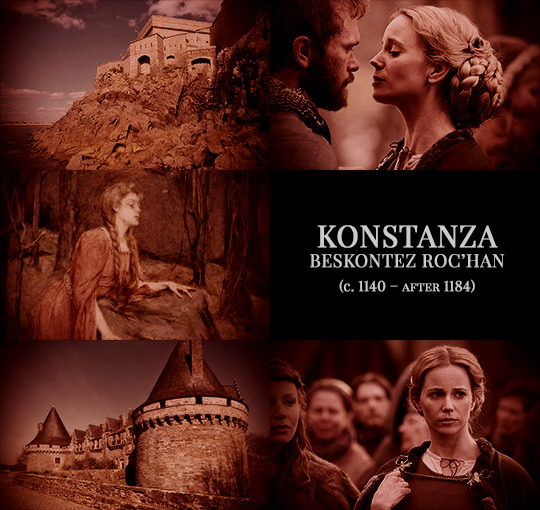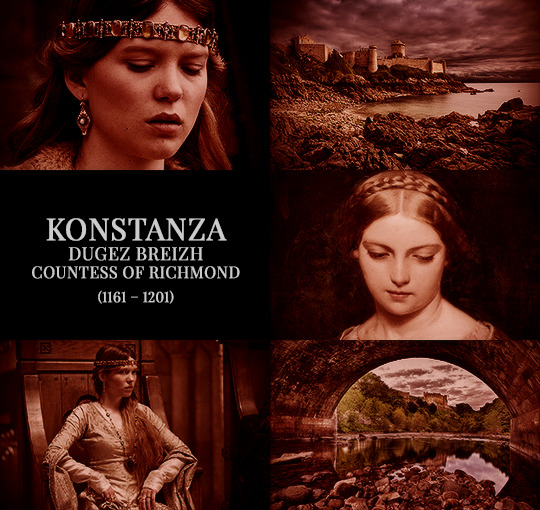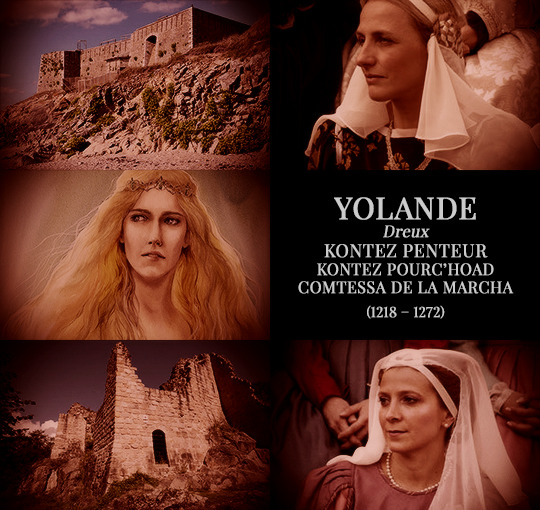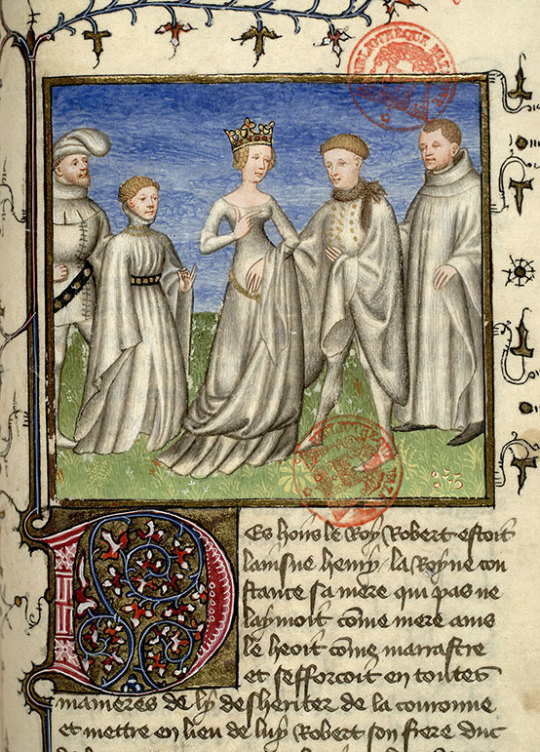#berthe de bourgogne
Explore tagged Tumblr posts
Text
An absence of family strife
Their marriages were generally fruitful and, what was equally important, their sons were usually loyal, or at least obedient. There are remarkably few instances of rebellion against paternal authority. Robert the Pious did take arms against his father, probably in 996, and his own two sons Henri and Robert united against him in 1030; but these were isolated instances. The only other example that can be offered is the quarrel between Philip I and the future Louis VI, which may be attributed to the malicious intervention of the prince's stepmother, Queen Bertrada. If it demonstrates anything, it shows the patience and loyalty of Prince Louis under considerable provocation. No contemporary royal, or even noble, family, can show anything approaching so favourable a record in this respect.
The characters of the individual kings go some way towards explaining this absence of family strife. The Capetians were good husbands. Only two bastards are recorded for the fourteen kings of the dynasty: Isabella, daughter of Louis VI, who married Guillaume de Chaumont, and Pierre Charlot, the son of Philip Augustus and that 'damsel of Arras' whose name the chroniclers delicately omit. Only three scandals can be pointed to: the elopement of Philip I with Bertrada de Montfort, wife of Fulk of Anjou, on 15 May 1092; the estrangement of Philip Augustus and Ingeborg of Denmark in 1193; and the tragic episode of the daughters-in-law of Philip the Fair in 1314. The only excuse put forward for the first affair was the excessive obesity of the lawful queen ("praepinguis corpulentiae", according to William of Malmesbury); it would not be unfair to point out that the king himself, at the age of forty, was already very fat also. Dr Brachet has plausibly explained the behaviour of Philip Augustus as the consequence of the impact of a momentary anaphrodisia on a nervous system already strained by illness. Certainly, the adventure of the damsel of Arras apart, he does not appear to have led an irregular life. But we must look more closely at the third episode, which throws a vivid light on the moral values of the royal family.
Robert Fawtier - The Capetian Kings of France
#xi#xii#xiii#xiv#robert fawtier#the capetian kings of france#robert ii#henri i#robert i de bourgogne#philippe i#louis vi#bertrade de montfort#isabelle#pierre charlot#philippe ii#la demoiselle d'arras#philippe iv#berthe de hollande#marguerite de bourgogne#jeanne ii de bourgogne#blanche de bourgogne#ingeborg de danemark#foulques iv d'anjou
1 note
·
View note
Photo









Daughters of the Breton Dukes, part I
Judit, duchesse de Normandie. Daughter of Konan Iañ and Ermengarde-Gerberge d’Anjou. Mother of Aélis de Normandie, comtesse de Bourgogne and Aénor de Normandie, comtesse de Flandre. Grandmother of Adélaïde de Normandie, comtesse d’Aumale.
Hawiz, dugez Breizh. Daughter of Alan III and Berthe de Blois.
Berta, dugez Breizh. Daughter of Konan III and Maude FitzRoy. Mother of Konstanza Breizh, beskontez Roc’han and Enoguen Breizh, abbesse de St. Sulpice.
Konstanza, beskontez Roc’han. Daughter of Berta and Alan Penteur, 1st Earl of Richmond.
Konstanza, dugez Breizh. Daughter of Konan IV and Margaret of Huntingdon. Mother of Eleonora Breizh, the Fair Maid of Bretagne and Alis a Dhouars, dugez Breizh.
Eleonora, Countess of Richmond. Daughter of Konstanza and Geoffrey of England.
Alis, dugez Breizh. Daughter of Konstanza and Guy de Thouars. Mother of Yolanda Breizh, kontez Penteur.
Yolanda, kontez Penteur. Daughter of Alis and Pierre Mauclerc de Dreux. Mother of Alais de Lusignan, Countess of Gloucester; Marie de Lusignan, Countess of Derby; Isabelle de Lusignan, dame de Belleville; and Yolande de Lusignan, dame de Preaux.
Alis, comtesse de Blois. Daughter of Yann Iañ and Zuria Nafarroakoa. Mother of Jehanne de Châtillon, comtesse de Blois.
#bretagne#house of dreux#historyedit#french history#european history#women's history#history#royalty aesthetic#nanshe's graphics#medieval#bretoned
74 notes
·
View notes
Text
Constance d'Arles: resilient and determined
Hugh Capet, unsuccessful in his search for a Byzantine princess, arranged for his son Robert "the Pious" (so named for later acts of piety, rather than marital fidelity) to marry Rozala, the daughter of Berengar II of Italy and Countess of Flanders from her first marriage. She was considerably older than Robert, who divorced her within one year of his father's death. He had been living openly with Bertha of Burgundy (d.1035), Countess of Burgundy, and also a widow. However, Bertha was Robert's cousin: Pope Gregory V refused to sanction their marriage on the grounds of consanguinity, and excommunicated Robert. Robert repudiated Bertha around 1004; she remained unmarried and a force to be reckoned with.
In 1001, Robert married Constance of Arles (d.1034). She was a formidable, ambitious woman and their marriage, unsurprisingly, was difficult. Bertha's family opposed her, and Robert's advisors despised Constance because she favored southern customs and her Provençal family. When Hugh of Beauvais, close advisor to the king, suggested that Robert repudiate her in 1007, he was murdered by knights of Constance's kinsman, perhaps at her order. Her ambitions alienated the chroniclers of her day, who blamed her for several of the king's decisions and accused her of outrageous actions. In the account of a heresy trial of her former confessor, Constance struck out his eye with her staff. In 1010, Robert went to Rome, accompanied by his former wife Bertha, to seek permission to divorce Constance and remarry Bertha. His request was denied, he returned to Constance and together they had several children, with and against whom she plotted revolt against their father. At Constance's urging, their eldest son, Hugh Magnus, was crowned co-king with his father in 1017; after Hugh's death in 1025, Robert and Constance quarreled over which of their surviving sons should inherit. Despite his mother's protests, their second son, Henri, was crowned in 1027. Fulbert of Chartres wrote in a letter that he was frightened away from the consecration of Henri "by the savagery of his mother, who is quite trustworthy when she promises evil." Constance continued to encourage her sons to rebel, Robert agreed to their demands, and made peace until his death in 1031. Soon after that, Constance was at odds with both sons, Henri and Robert; she seized her dower lands and refused to surrender them to Henri's wife, Anna. Henri fled to Normandy, where he received aid, weapons and soldiers from his brother, returning to besiege their mother. However, Constance, ever wily and resilient, escaped, surrendering only when Henri swore to slaughter all the inhabitants of a town.

Despite this litany of malicious actions, contemporary critics of Constance also comment favorably on her concern for the royal treasury and her wise counsel to her husband. Her Provençal "foreignness" isolated her, and she struggled to balance her allegiance to both her natal and marital family. Seen in this light, many of her more notorious actions can be attributed to the absence of familial support and very real fears of repudiation. Penelope Adair argues convincingly that, given the limited resources at hand, Constance's efforts to preserve the royal treasury and her objections to alienation of royal property were "the well-founded concerns of a clear-sighted and determined royal consort."
Theresa Earenfight - Queenship in Medieval Europe
#x#xi#theresa earenfight#queenship in medieval europe#constance d'arles#bosonides#hugues capet#robert ii#rozala d'italie#berthe de bourgogne#hugues de beauvais#hugues de france#henri i#robert de bourgogne#fulbert de chartres#anne de kiev
6 notes
·
View notes